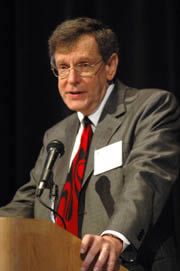Exchange of Letters to the Editor on state support of Catholic Schools
On September 6, a Letter to the Editor of the St. Louis Post-Dispatch was published, advocating taxpayer support for special needs education in Catholic schools. (Click link to read).
Our response (below) appeared in the 9/10 edition. Unfortunately, they omitted my affiliation with AU:
While it could be true, as Lisa Wilson writes (Taxes could help Catholic Schools educate special needs students, September 6), that all it takes to educate special needs students is “willingness and money”, there are many who would say that other things are also required. If Catholic schools are willing to provide special education, there seems to be little evidence of it. However, it is indisputable that religious schools would like to use public tax dollars, preferably without the need to meet state standards. There are excellent reasons why diversion of public money to religious institutions is not allowed. One of the best is in the Missouri Constitution, Article 1, Section 7: “…no money shall ever be taken from the public treasury, directly or indirectly, in aid of any church, sect or denomination of religion, or in aid of any priest, preacher, minister or teacher thereof, as such; and that no preference shall be given to nor any discrimination made against any church, sect or creed of religion, or any form of religious faith or worship.” Of course, this section of our state constitution is consistent with the first amendment to the United States Constitution, which constitutes the basis for separation of church and state. While we are delighted that Mrs. Wilson is pleased with the education provided by the taxpayers to her son, we hope that she can find a Catholic church to provide the religious training that she greatly values.
Hal Harris
Creve Coeur, MO
Vice-President, St. Louis Chapter of Americans United for Separation of Church and State


